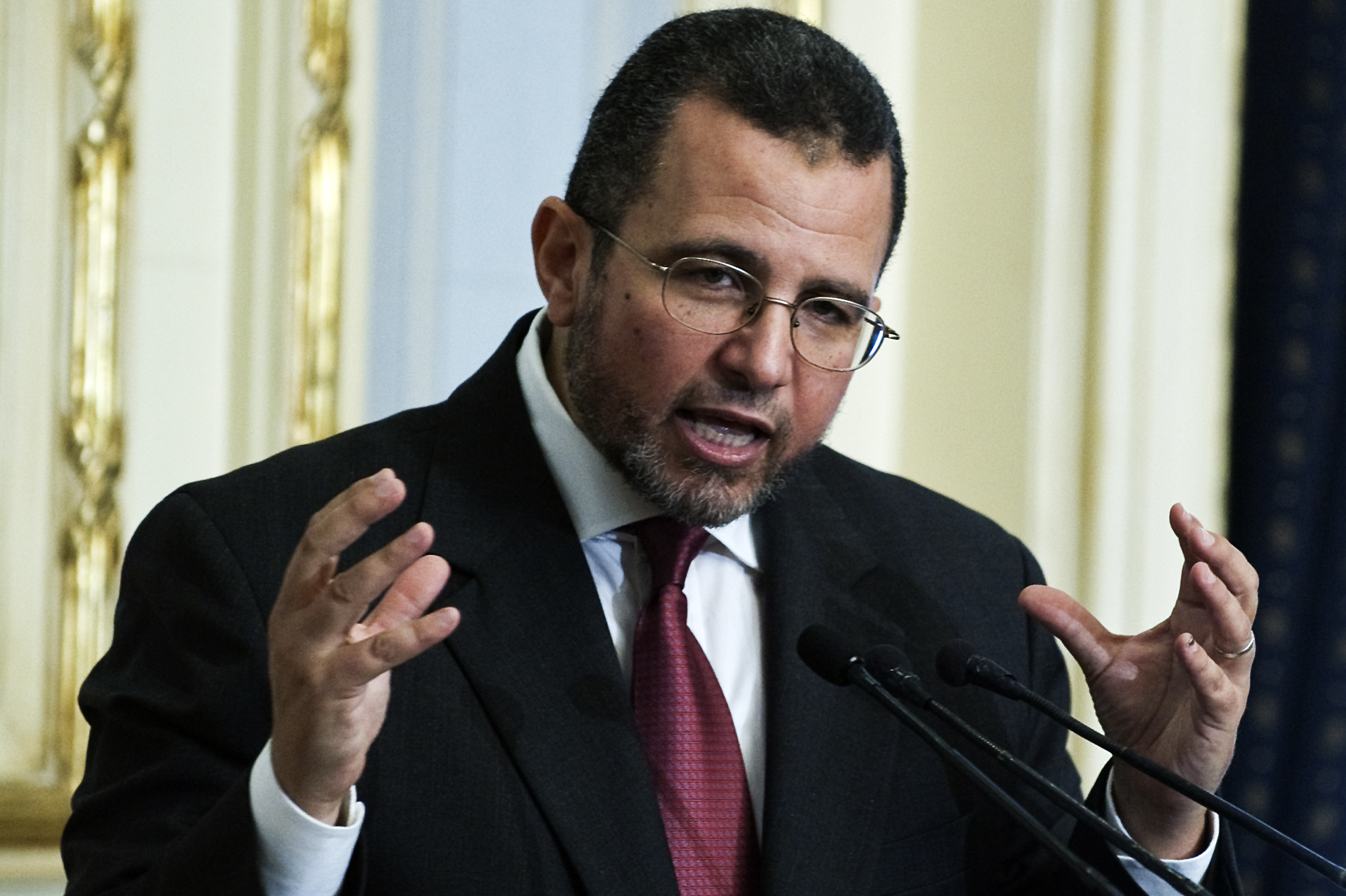
By Abdel Qader Ramadan
The Egyptian economy suffers from “structural defects”, according to Sherif Al-Diwani, executive director at Egyptian Center for Economic Studies (ECES).
“92% of real estate assets are unregistered, and 60% of the economy is random and informal,” said Al-Diwani, arguing that an economy of this sort cannot continue and progress.
Such a large proportion of the economy working in the informal sector reflects a defect in the system of government laws and red tape, he said, pushing owners of economic activities to work outside the legal system.
“No one wants to work informally…but outdated laws are obstructing the efforts of citizens to establish projects…and conflicting regulations, along with the high cost of licensing and registration, have contributed to the growth of the informal sector,” said Al-Diwani.
In the wake of the presidential elections held last week, the economy has emerged as the primary challenge facing the incoming president. Media has focused on the ability of the government to reform the economy, which has deteriorated amid the security conditions the country endured since the 25 January Revolution.
In his office on the eighth floor of the Nile City Towers, a building set along the Nile Corniche and overlooking one of Cairo’s poorest neighbourhoods Ramla Boulaq, Al-Diwani talked about the need to solve the problem of real estate registration and unrecorded assets. Hernando de Soto, president of the Institute for Liberty and Democracy, estimates these to be worth $360bn.
“Those who engage in economic activities and own assets in the informal sector are not criminals,” said Al-Diwani, pointing out that they have rather devised housing and jobs for themselves outside of the complex and ineffectual legal system.
“The Egyptians who want to establish gainful commercial projects are surprised by [very] prohibitive measures,” which push them to work informally, he said.
The law is originally designed to serve the interests of the people, Al-Diwani noted, but “if the law is not working for 80% of Egyptians, the flaw is in the law and not the citizens.”

The executive director mentioned a study by De Soto in Cairo in 2000 and updated this year, which found that the procedures required to open a bakery in Tanta, a city in the Gharbeya governorate, requires taking a full 549 days, more than one year and a half.
These procedures have not changed over the last decade, the costs have actually increased from EGP 6,000 to EGP 8,000, according to Al-Diwani, and this is without taking into account the “bribery” used to shorten the process.
Reforming this flaw in the economy remains an essential component of achieving social justice, he said, rejecting the idea that social justice should be limited to raising the minimum wage on salaries and pensions or increasing grants for the poor.
“Social justice grants Egyptian citizens an opportunity for self-achievement through hard work and study,” said Al-Diwani, pointing out that eliminating corruption is one of the issues surrounding social justice.
“As long as corruption and bureaucracy continues, there’s no way to talk about opportunities for self-achievement and success,” he added.
Al-Diwani, working as consultant in Cairo until he moved to Switzerland in 1999, labelled his office at the time of its registration in Cairo ‘public interest company.’ A government worker had rejected labelling it ‘public interest’ and forces him to add the word ‘company’. Al-Diwani said he “resented the level of rampant corruption and type of thinking that largely favoured hereditary rule,” so decided to travel abroad.
Al-Diwani said that he decided to return to Egypt immediately after the revolution in 2011, resigning from his position at the World Economic Forum in Geneva, which he had held for 6 years, and was hoping to return to Egypt as it moved into an important stage after the revolution.
“The Center for Economic Studies mainly focuses right now on deepening the correct understanding of social justice, which means achieving opportunities for everyone,” said Al-Diwani.
The centre’s interest in De Soto’s study and project, which is looking to integrate unregistered assets and real estate into the formal sector, comes in terms of achieving social justice in the broader sense, Al-Diwani said, which means granting people their rights in formally owning their assets. This ensures that their assets reach them and help them develop their capabilities and ability to live well.
“Egyptians have a huge amount of savings. If these savings were legalised and brought into the formal economy, the economic growth rate would improve greatly,” said Al-Diwani, pointing out that unregistered savings are the result of long years of work and Egyptians want to ensure their ownership over them formally.
This project does not require money in the first place as it requires a decision and a clear political vision, according to the director. It requires frankness and building confidence in people, reconciling old violations, and legalising their statuses according to clear and specific legal procedures, he said.
“De Soto met with General Al-Sisi for three hours during his recent trip to Egypt a few weeks ago and discussed the project to legalise the informal sector,” said Al-Diwani. He pointed out that Al-Sisi, who appears to have won the presidential elections based on early results, said he would adopt the project. De Soto is expected to return to Cairo shortly to discuss the mechanisms for implementing it.
Al-Diwani said that slums and informal buildings are wasting great opportunities for the private sector to offer necessary services. Legalising these areas would open the door for big investment opportunities, especially in services and infrastructure.
He pointed out that implementing this project has two main components. First, the government needs to solve the crisis of confidence between the people and the government. The government needs to explain in unambiguous terms that these steps are for their own benefit, and that all old violations will be disregarded and their statuses legalised.
The second component, he said, has to do with operational procedures for the recognition of contracts and registering property. He explained the experience of South Africa, where a committee of elders was formed in each area or neighbourhood, and those interested applied to it to register their properties. Following this a study was conducted into the claims of ownership and an appeal process was opened. Finally, registration was granted to whoever was proven to be the owner.
The problem of registration in Egypt is a strange phenomenon, Al-Diwani said. Most of the assets, real estate and land is unregistered, he went on, explaining that acres of agricultural land which farmers acquired according to the social reform law dating from the Nasser period – five acres per farmer – was never registered as real estate, even through today. Instead, these are merely holdings dealt with by the credit and cooperative association it belongs to, and they cannot take mortgages from regular banks or receive funding based on this ownership.
“Most of these lands are still registered in the names of pashas and feudal lords,” said the director.
Because of this we find acres of agricultural land subject to the agrarian reform law valued at EGP 50,000, while registered land in the same area right is worth EGP 120,000, Al-Diwani concluded.



